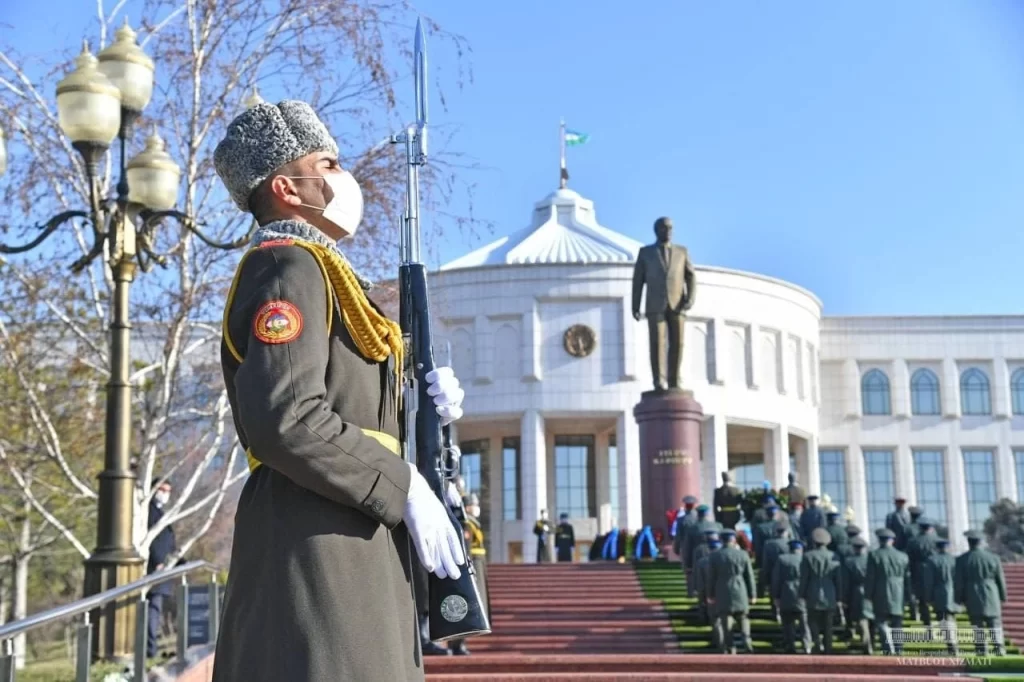Local media have ignored a report by RFE/RL’s Uzbek service about shady goings-on in the oil and gas sector.
Uzbekistan has been abuzz since last week over the contents of a report by RFE/RL’s Uzbek service, Radio Ozodlik, about how a small circle of well-connected local and Russian tycoons have taken control over large swathes of the oil and gas industry.
Since an Ozodlik-produced video report was uploaded to YouTube on February 9, it has racked up almost 700,000 views and generated more than 7,000 comments.
Local media, however, has been wholly mute in its response. For days, neither state-controlled outlets nor their privately owned peers even alluded to a scandal of significant public interest.
Prominent citizen journalists, popularly known as bloggers, were likewise silent. Widely followed channels on Telegram, the messaging app that most Uzbeks use to communicate and get their news, appeared to pretend the report, which was based on extensive research into leaked government documents, had not appeared at all.
This paradoxical situation has shed light on the persisting practice of self-censorship in Uzbekistan, whose government has sought over recent years to cast itself in the guise of a champion of political and economic reform alike. Recent high-profile arrests of media workers at an outlet called Human.uz have served as a fresh reminder that trouble awaits those perceived as stepping out of line.
“Journalists and bloggers in Uzbekistan mostly prefer to toe the government line for fear of repressions,” Sardor Salim, a Tashkent-based journalist, told Eurasianet. “The mere mention of certain topics might create serious problems for them. Some media outlets and blogs are also controlled by interest groups.”
There are clear precedents to local media striving to avoid references to Ozodlik reporting. In 2021, the broadcaster published a bombshell investigation purporting to document how state-owned companies had built, at the taxpayers’ expense, a vast luxury resort for President Shavkat Mirziyoyev’s own use along the Shovvozsoy river in the mountains southeast of the capital, Tashkent. Those revelations were greeted with similar self-censorship among local media.
Officials have sought to adopt a pro-active stance on this occasion, though, albeit a few days late.
In the wake of unrelenting chatter among members of the public, a handpicked group of journalists and bloggers were summoned on February 12 to receive a briefing from Energy Minister Jurabek Mirzamakhmudov. The minister rebutted some claims in Ozodlik’s report, which tangentially included an allegation that the government had given control over all the country’s oil and gas fields to Russian companies owned by tycoons with links to Russian President Vladimir Putin for a period of 35 years.
“This is not true. This is completely unfounded, false and misconstrued information. Most of the fields now in development are owned by [state oil and gas company] Uzbekneftegaz,” Mirzamakhmudov can be heard saying in footage of the press briefing.
Of the 294 oil and gas fields in Uzbekistan, 188 are controlled by Uzbekneftegaz, the minister said. Mirzamakhmudov said the 35-year deal pertained to only one, currently undeveloped, gas field known as M25.
Mirzamakhmudov’s remarks seemed designed, however, to mislead and distract — a plan that obedient bloggers and journalists have gone along with — since the specific allegation he was rebutting alluded to only a passing detail in Ozodlik’s report.
Arguably the most damaging charge in the report was that the Uzbek government has been arbitrarily granting development and extraction rights to oil and gas fields to no-name offshore companies based in places like Cyprus, Singapore, China, and the United Kingdom at the direct behest of President Mirziyoyev’s office. Many of the opaque vehicles named are linked to entities controlled by allies of President Putin and, in some cases, to relatives of former top officials in Uzbekistan’s security services. In addition to creating a political hazard, that state of affairs led to weak oversight over the oil and gas industry that in turn generated financial waste and chronic inefficiency of the sort that drove Uzbekistan beyond the edge of crisis during a recent cold snap, the authors of the Ozodlik report concluded.
Source: Eurasia Net


